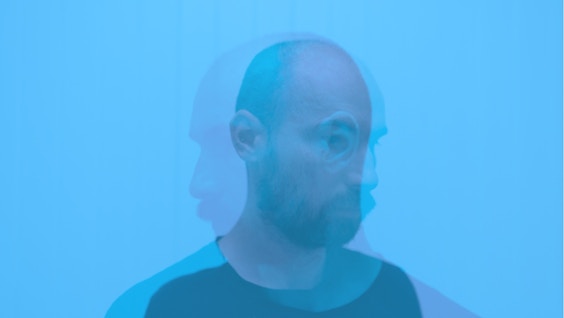I Am Sober is a free app that helps you get some control back in your life.

What Does Xanax Do to Your Eyes?
Last Updated: Fri, November 1, 2024Substance abuse can have a variety of negative impacts on the eyes that are difficult to disguise. From the size of their pupils to redness, substance abuse shows up in different ways. But what does Xanax do to your eyes?
In this post, we will answer the question: What does Xanax do to your eyes? We will also explain the harmful effects of abusing Xanax.
What Is Xanax?
Xanax is a brand name for alprazolam, a strong benzodiazepine used to treat anxiety and panic disorders. It does this by reducing aberrant brain activity.
Xanax is available as a tablet that dissolves fast in the mouth, an extended-release tablet, or a concentrated oral solution.
Benzodiazepines, the family of substances Xanax belongs to, have anti-anxiety, anti-convulsant, muscle relaxing, and sedative properties. In particular, Xanax works by boosting the effects of gamma-aminobutyric acid (GABA).
GABA is a brain neurotransmitter that promotes serenity and relaxation. To treat anxiety and panic disorders, the medication reduces the level of excitement in the brain.
According to the Drug Enforcement Administration, alprazolam or Xanax is one of the most commonly prescribed benzodiazepine medicines in the United States. It is also one of the benzodiazepines most commonly detected in the criminal market.
Xanax is frequently recommended for anxiety-related mental health issues. It can be used to treat anxiety disorders such as generalized anxiety, panic disorder, social anxiety disorder, and phobias.
On top of that, Xanax can provide comfort for people who suffer from anxiety. By using Xanax, these people are able to focus on their lives without being plagued by anxiety or phobias. When used as directed, it can help people relax and calm down.
On the other hand, Xanax can cause harm when abused.
Harmful Effects of Xanax
Here are the harmful effects of Xanax:
Anxiety
Abusing Xanax to deal with your anxiety will actually make you feel more anxious than you did before you started taking the drug.
Although this is not a common side effect, some people who take Xanax report feeling more anxious after taking the drug.
Panic Attacks
Abusing Xanax can also cause panic attacks.
Physical symptoms of panic attacks include shaking, disorientation, nausea, rapid, irregular heartbeats, dry mouth, dyspnea, perspiration, and dizziness.
Panic attacks are not usually dangerous. However, panic attacks can be scary.
Hyperventilation
In relation to the previous effects, Xanax abuse can also lead to hyperventilation.
As its name implies, over-breathing or hyperventilation can leave you feeling out of breath.
Tremors
Tremors are rhythmic movements of one limb or section of your body that are accidental and uncontrollable. Tremors can occur at any time and in any portion of the body.
When you abuse Xanax, tremors can happen frequently.
Sleep Problems
Another harmful effect of abusing Xanax involves having difficulty sleeping.
Also known as rebound insomnia, sleep problems are a typical issue among people who misuse Xanax or other benzodiazepines to manage sleep problems.
While these medicines are effective at first, using them repeatedly can make it increasingly difficult to sleep without a prescription.

What Does Xanax Do to Your Eyes?
Taking Xanax can harm your eyes in a variety of ways, especially if you abuse or use the medication for an extended period of time.
So what does Xanax do to your eyes?
Here are the common effects of Xanax on the eyes:
● Pupils that are larger, dilated or expanded (black part of the eye)
● Vision impairment
● Color vision shift
● Reading difficulty
● Difficulty seeing at night
● Double vision
● Irritation
● Increased sensitivity to sunlight
Furthermore, Xanax bars might cause yellowing of the eyes in some persons after an overdose. If these uncommon but dangerous adverse effects occur, seek medical attention immediately.
Other eye-related adverse effects of Xanax can also occur. If you have any eye-related side effects while taking this medicine, contact your doctor.
What to Do When Xanax Affects Your Eyes
Consult your doctor if Xanax is affecting your eyes. They may be able to reduce adverse effects by adjusting your dosage.
They may advise taking fewer doses throughout the day rather than a bigger amount all at once. They may also reduce your total dose.
However, you should not stop taking Xanax without first consulting your doctor. If you need to discontinue the medicine, your doctor will work with you to gradually lower your dose. If you stop taking the drug abruptly, you will likely have withdrawal symptoms.
Conclusion
Stopping taking Xanax suddenly and without supervision is associated with unpleasant, if not dangerous, withdrawal symptoms. These symptoms include seizures and severe headaches.
If you or your loved one is suffering from Xanax addiction or withdrawal, seek professional help right away. The right support system and a sobriety app like I Am Sober can also help.
I Am Sober is a free app that helps you get some control back in your life.


